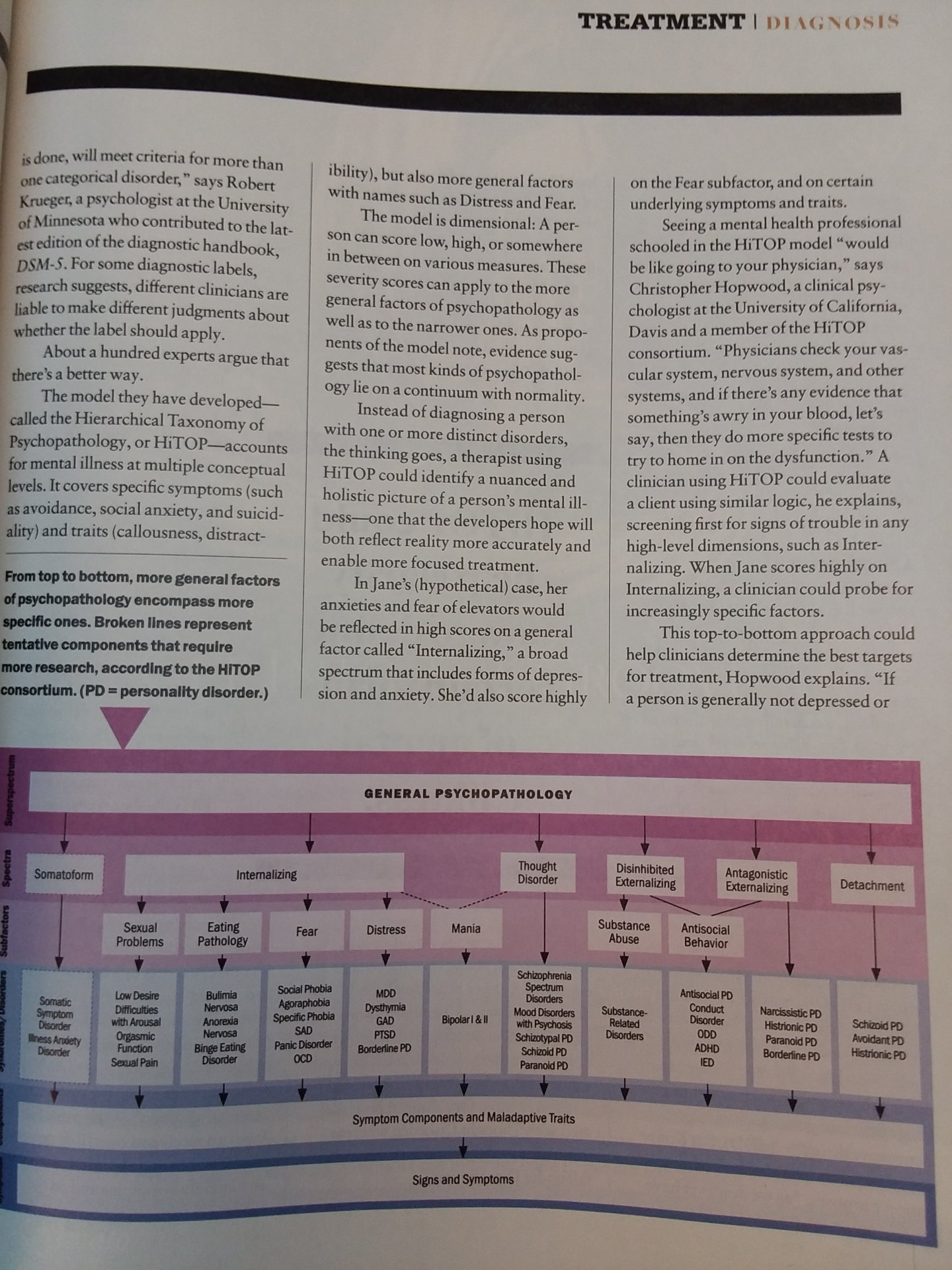Agreed. I wish more patients understood this. They often cite two differing diagnoses by different clinicians as evidence that all psychiatrists are quacks! In reality though, responsible clinicians respect that a psychopathology diagnosis is a shifting thing, and try not to undercut confidence in the entire field.
This is very true. And since it’s not an absolute science and diagnoses are based on personal evaluation and interpretation as well as the information a patient chooses to share, you can let five psychiatrists analyze a patient in a short time and come up with five different diagnoses. However, if you let those five psychiatrists discuss those different diagnoses among each other, most will be able to see the others’ point of view.
To name myself as an example: previously I was diagnosed as someone with recurrent depressive episodes, social anxiety and avoidant and obsessive compulsive traits.
Some time later I saw a psychologist who realized that that lengthy diagnosis could very well be explained by me being on the spectrum. After a lengthy discussion with a team of psychiatrists and psychologists they decided that I did fit the criteria for Aspergers, which explained all of the previously described diagnosis.
The fact that I’m labeled with Aspergers now doesn’t make the former diagnosis invalid or untrue, it’s just an all-encompassing diagnosis that fits better. Sometimes we don’t find a good diagnosis to explain it all, which is when people end up with multiple diagnoses or even just descriptions of traits.
I personally don’t see psychiatry as a practice that tries to pigeonhole people. It tries to describe observed and anecdotal thought patterns and behavior, if possible by using an established diagnosis. Then it seeks to treat the cause, or if no cause is found, the symptoms.
My personal view is that psychiatry is more of an art form than an exact science. While it requires a lot of medical and pharmaceutical knowledge, you need good conversational skills and sharp observational skills as well as skill at abstract thinking to do right by your patients.

